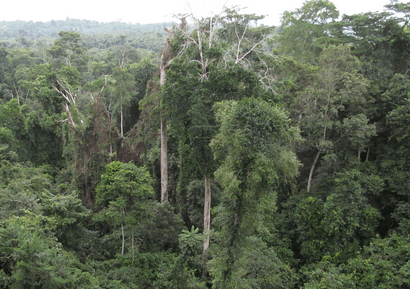Ghana’s resource curse is a manifestation of poor governance – Dr Ayuk
 Dr Elias T. Ayuk, Immediate Past Director of the United Nations University’s Institute for Natural Resources in Africa (UNU-INRA), has said the ‘resource curse’ is a manifestation of poor governance in Africa, with Ghana not an exception.
Dr Elias T. Ayuk, Immediate Past Director of the United Nations University’s Institute for Natural Resources in Africa (UNU-INRA), has said the ‘resource curse’ is a manifestation of poor governance in Africa, with Ghana not an exception.
He said the closed nature of the extractive industry with few linkages to the local economy hindered sustainable development.
Dr Ayuk said this during a farewell lecture organised in his honour by the UNU-INRI on researches the Institute conducted in various countries, including Ghana, on how well the mining sector could be managed for sustainable development.
A resource curse explains a context where countries with abundant natural resources like gold, diamond and fossil fuels tend to have less economic growth, democratic rule, and worse development outcomes than countries with fewer natural resources.
Dr Ayuk, therefore, said there was the need for a new governance framework to address the challenges associated with the mining industry, which must be steered by many actors.
He said even though there may not be perfect systems of governance, different interests must be sought and moved from the local level to a more global approach to deal comprehensively with the challenges in the mining industry.
“For minerals and metals to contribute to sustainable development, we need a framework that is able to manage the tensions between the global north and the global south,” he said.
Considering issues on social and environmental impacts, Dr Ayuk said the impact of mining on the environment depended on the type of operation and sensitivity of the environment.
He mentioned freshwater competition and contamination; marine environment disturbance; air pollution; soil erosion and contamination; radioactive pollution; significant climate change footprints; and habitat clearance as some of the environmental clearance.
He introduced the term ‘6Is’ signifying Ideas, Incentives, Innovation, Institutions, Infrastructure, and Implementation as critical pillars for sustainable development, which must be taken into consideration by Ghana in policy formulation.
Dr Ayuk encouraged actors in the mining industry to extend their support from charity-driven Corporate Social Responsibilities to an obligation-driven support.
“For instance if miners pollute water bodies with their activities, they must be obliged to take a step to clean the water bodies,” he said.
Professor Emmanuel Owusu Bennoah, a Soil Scientist and the Chairman for the Lecture, said although Dr Ayuk had completed his tenure of office at the Institute, his publications were available to give a wide range of knowledge to students and researchers.
He said Ghana was fortunate to have phosphate rock, which is used as fertilisers and nutritional supplements for animals and, therefore, needed to make good use of it, adding that some countries would not hesitate to take advantage of the opportunity.
Prof. Bennoah said the lecture had come at the right time when the country was facing problems associated with illegal mining.
Dr Fatima Denton, the newly appointed Director of UNU-INRA, said in Africa growth was strongly correlated with the people’s consumption and exploitation of natural resources.
“Harnessing natural resources, wealth for structural, social and economic transformation, however, require quality and empirical research…” she said.
She said resource governance was at the heart of environmental sustainability as increased resource conflicts would continue to threaten the Continent’s geopolitical stability
“Our task is huge and we cannot afford to be insular. We have to elevate science to economic literacy and anchor our work to respond to problems that our governments, farmers, pastoralists and vulnerable communities are wrestling with,” she said.
Source: GNA
